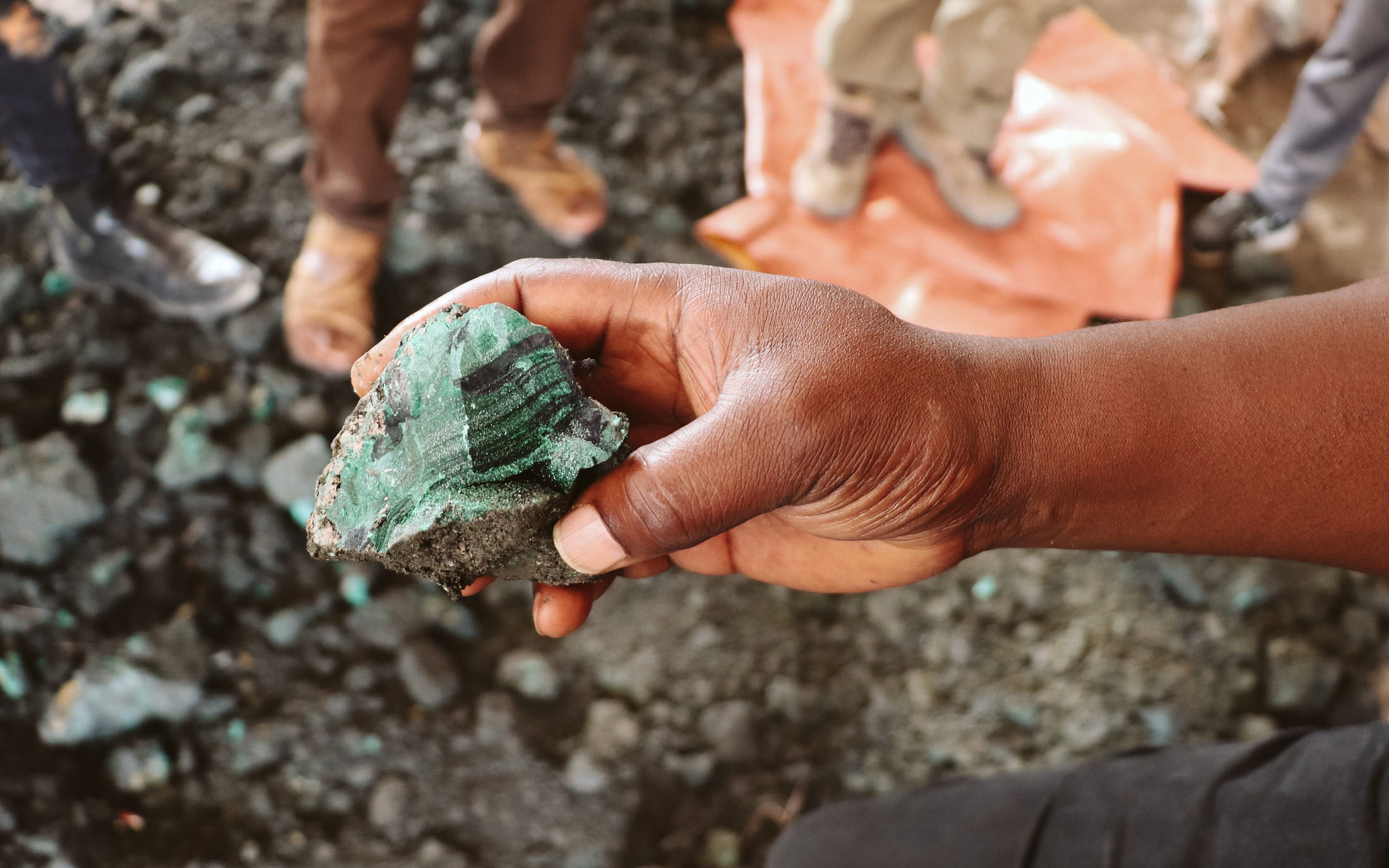
US-led peace negotiations could increase Rwanda’s production of Congo minerals according to insiders
Kinshasa has long said that neighboring Rwanda illegally takes minerals from the Congo, like tin, tantalum, and tungsten. Three sources told Reuters that under the rules of a peace deal being negotiated by the US, these minerals could be legally sent to Rwanda to be processed.
Kinshasa says that Kigali is smuggling tens of millions of dollars worth of minerals over the border every month to be sold in Rwanda. This is a major cause of the conflict in eastern Congo between Kinshasa’s forces and the M23 rebels backed by Rwanda, which has gotten worse since January.
U.S. President Donald Trump’s senior adviser for Africa, Massad Boulos, told Reuters earlier this month that Washington wants the two sides to sign a peace agreement this summer. The agreement will include mineral deals that are meant to bring billions of dollars in Western investment to the area.
Last week, he said on X that the U.S. had given both sides the first draft of a deal, but the details of it have not been made public.
Reuters talked to two foreign sources and one U.N. source who had been briefed by U.S. officials. They said that the talks could lead to minerals being refined and sold from Rwanda in what are now artisanal mining zones in eastern Congo.
“Their (Washington’s) point of view is simple: If Rwanda can legitimately benefit from Congo’s minerals through processing, it will be less tempted to occupy its neighbour and plunder its minerals,” said one of the diplomats.
“And for Congo, industrialization would increase its revenues, improve traceability, and combat the armed groups that currently live off the miners.”
Congo has long said it wants to stop exporting raw materials and start processing them in the country itself. When asked about this, a government spokesman for the country sent questions to the foreign ministry, which did not answer.
A Congolese official who did not want to be named said that there could be no cooperation on minerals until Rwandan troops and “their proxies” (M23, which controls more land than ever in eastern Congo) left the area.
This person also said that Rwanda would have to accept “our sovereignty over everything, including our minerals.”
For Rwanda, the talks could lead to a huge influx of cash that could help clean up a part of its economy that has been mostly illegal up until now. For its part, the U.S. would be able to get better access for itself and its partners to mineral resources in the Congo that are currently controlled by China.
A spokesperson for the U.S. State Department said that Congo and Rwanda promised to work with the U.S. government and U.S. investors to create “legal, transparent, and formal end-to-end mineral value chains (from mine to processed metal) that link both countries.” This promise was made in a declaration signed in Washington last month.
It’s still not clear how much money will be invested or who will be making it, but Boulos told Reuters last week that U.S. officials had talked to “probably up to 30” U.S. investors about “doing business in Rwanda in the mining space,” which includes actions that happen after the minerals are mined.
He also said that the U.S. International Development Finance Corporation would “provide full support on these transactions and investments.” This is an organization whose job it is to get private money to help the U.S. reach its foreign policy and national security goals by doing things like lending money.
The area has a long history of bloodshed, which makes it more likely that companies that take the plunge will lose money.
WHAT CAUSES IT
A war that began with the Rwandan genocide in 1994 will not be stopped by the mineral projects alone, the sources said.
“A deal on mining won’t bring peace.” “These plans will take three, five, or ten years,” said another official. “There are immediate problems and root causes that need to be addressed.”
The United Nations, Congo, and the United States have all said that Rwanda is making money off of illegally mining Congolese minerals. Kigali rejects these claims.
Four years ago, an attempt was made to get Rwanda and Congo to work together more on mining issues, but it failed.
They made deals in June 2021, including a memorandum that said state-owned Sakima and private Rwandan company Dither would work together to mine and sell gold from Congo.
But in June 2022, Kinshasa called off the deal because it said Rwanda was allegedly giving military aid to M23 and the rebels had taken over the important border town of Bunagana.
Rwanda has said it does not support M23, but it has admitted that it is using “defensive measures” against Rwandan Hutu militias in eastern Congo. A lot of people talk about the Democratic Forces for the Liberation of Rwanda as a threat, but analysts say they aren’t that dangerous anymore.
A diplomatic source said that Kinshasa is not a trustworthy talking partner for Kigali. “They were upset that the Sakima deal fell through,” they said of the Rwandan government.
William Millman, a consultant on the tantalum-niobium business who has been to mines in both countries, said, “Neither country trusts the other.”
“So unless you’ve got somebody with a big club, like the United States, they’re not going to honour agreements.”
All Categories
Recent Posts
Tags
+13162306000
zoneyetu@yahoo.com



